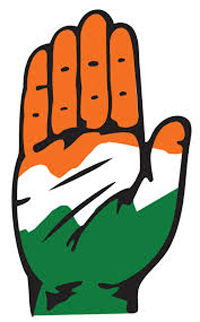Srinagar
The University Grants Commission (UGC) on Thursday scrapped oral interviews, or viva voce, as the sole criterion for admission to Ph D and M Phil programmes.
According to a report published by Indian Express, the higher education regulator has amended the UGC (Minimum Standards and Procedure for Award of M Phil/ Ph D Degree) Regulations 2016 to give 70 percent weightage to performance in the written entrance test and 30 percent to the oral interview for the final selection of a candidate.
The report added that Commission has also permitted relaxation of five percentage points in the minimum marks to be scored in the written test by SC, ST and OBC candidates. So, while a general candidate will have to secure at least 50 percent in the entrance examination to qualify for the interview or viva voce, a candidate from the reserved category will have to score 45 percent.
In 2016, the UGC had introduced a new regulation to streamline the process for admission to Ph D and M Phil programmes across all educational institutions. These rules barred universities from offering Ph D programmes in distance education mode. The UGC notification also made entrance exams mandatory for admission and stipulated that aspirants would have to score at least 50 percent in the written test to qualify for the interview, on the basis of which the final selection would be done. In other words, the rules gave 100 percent weightage to viva voce for admission. The entrance test was only qualifying in nature.
Before this, universities did not follow a uniform policy for admissions. While some institutions factored in a candidate’s performance both in the written test and the interview for final selection, there were others who granted admission only on the basis of the former.
The new regulation sparked widespread protests by SC, ST and OBC students, who felt that allowing interviews to be the deciding factor for admission could abet discrimination. This rule, they said, put students from marginalised sections, who may not have strong communication skills, at a disadvantage, the report mentioned.
According to the new rules, a professor cannot guide more than three M Phil and eight Ph D scholars, an associate professor a maximum of two M Phil and six Ph D scholars, and an assistant professor not more than one M Phil and four Ph D scholars.
On Thursday, the UGC approved the establishment of an inter-university centre for yogic sciences in Swami Vivekananda Yoga Anusandhana Samsthana in Bengaluru, a deemed university founded by H R Nagendra, who is also Prime Minister Narendra Modi’s yoga consultant. The Commission has passed a budget of over Rs 100 crore for the same, Indian Express reported.
The Commission also approved new regulations that permit educational institutions to offer graduate, post-graduate and diploma programmes online. It also agreed to recommend regularisation of the Bengaluru, Hyderabad and Shibpur off-campus centres of Narsee Monjee Institute of Studies and the Hyderabad and Noida off-campus centres of the Pune-based Symbiosis International to the HRD Ministry.
The UGC granted autonomy to nine more deemed universities on Thursday. While TIFR in Mumbai, Indian Institute of Foreign Trade (IIFT) and Indian Agricultural Research Institute in Delhi, and Bharati Vidyapeeth in Pune were among those given autonomy under Category I, BITS-Pilani and SRM Institute of Technology and Science in Chennai were granted autonomy under Category II. The graded autonomy regulation gives institutions the freedom to start new courses, new departments, off-campus centres, research parks, appoint foreign faculty, admit foreign students, pay variable incentive packages to their teachers and enter into academic collaboration with top 500 universities of the world without seeking UGC’s permission, Indian Express reported.















